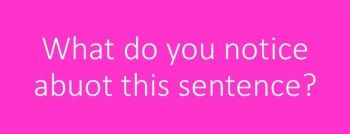There's More to Stress than Fight or Flight
Posted on

Your heart rate increases, your palms get sweaty, your attention becomes intensely focused on the danger…. It’s your body’s response to a physical threat, designed to keep you alive, and it’s not very pleasant. Almost every stress-related book, article and website which I’ve read (and there have been a lot!) talks about fight-or-flight, examining its effects, and the potential damage they can do if that stress persists for too long. But that’s only part of the story.
Very few of those resources explore how we've evolved beyond flight-or-flight – our alternative responses to stress, which can be altogether more helpful. The challenge response is what you experience when that stress is about something which really matters. The exam you want to pass, the presentation you want to ace, the setback you’re determined to bounce back from, the Olympic medal you want to win.
Its biology is similar to fight-or-flight – your heart speeds up, your senses are heightened. But your heart also beats more strongly and your blood vessels stay more open, so your whole system gets more oxygen, which increases your physical energy. And it feels focused rather than fearful. Top performers know how to channel this response – a sprinter stepping up to the start line for the Olympic 100m final, is not feeling calm and relaxed. They have a really strong challenge response to the stress they’re under, and they use that stress to perform.
Reframing those physical symptoms, to recognise them as helpful rather than disruptive, has been scientifically proven to improve performance in a range of stressful tasks, including public speaking and Maths tests. And as well as improving your performance, it also increases your ability to learn and grow from that stress, even if it’s something you’d rather not have experienced.
So take a few minutes to reflect – what situations kick off your challenge response, and how does it help you to perform? Because by being more aware, and ditching that all-stress-is-bad label, there might be ways that you can use that response to perform even better.
Want to get more from your thinking? To get my weekly tips and techniques go to http://www.resolve-stress.com/weekly-my-blog




